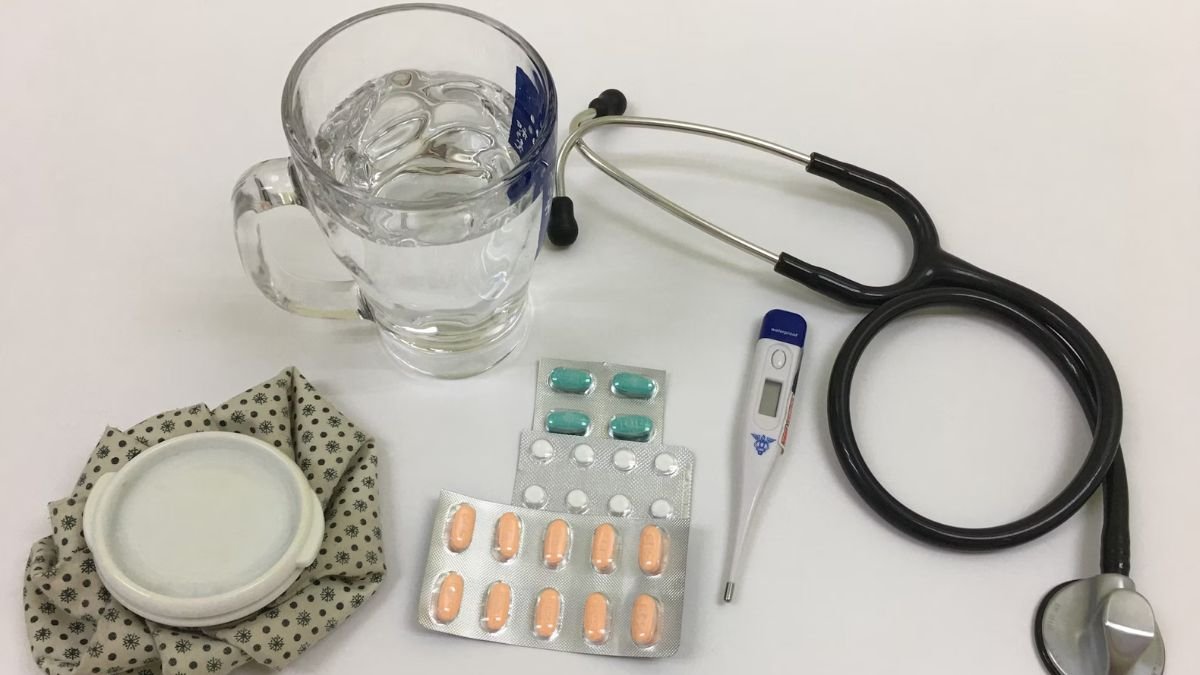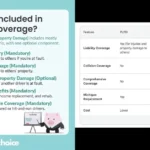Ozempic is a diabetes drug developed by Novo Nordisk that has received widespread criticism due to claims of severe side effects.
In September 2024, filings of Ozempic personal injury lawsuits jumped 151%. The spike in litigation coincides with heightened public awareness of potential health risks linked to Ozempic. Why are the cases increasing? How serious are the side effects of Ozempic? Here is all you need to know.
Notable Negative Effects of Ozempic
Ozempic is a prescription medicine that treats type 2 diabetes. It lowers blood sugar levels in multiple ways and is injected under the skin once a week.
Specifically, Ozempic helps the pancreas secrete more insulin, decreases sugar production by the liver, and slows stomach emptying. This makes people feel full longer and improves blood sugar control.
Ozempic belongs to a group of medications known as GLP-1 receptor agonists. It simulates the actions of the endogenous hormone GLP-1, which controls hunger, insulin, stomach emptying, and food intake.
As per Drugs.com, by binding to GLP-1 receptors, it leads to reduced blood sugar and A1C levels. Additionally, it might reduce hunger and aid in weight loss.
The medication has been found in clinical trials to be helpful in controlling glycemia in type 2 diabetes patients. It is FDA-approved for this use and for lowering cardiovascular risk in adults with type 2 diabetes.
Shares of Danish pharmaceutical giant Novo Nordisk reached unprecedented levels after the company announced exceptional revenue growth. The growth was driven by its popular weight loss and diabetes medications, Wegovy and Ozempic. This surge in stock price propelled the firm’s market capitalization beyond the $500 billion mark. It further solidified Novo Nordisk’s status as the highest-valued company in Europe. This highlights the importance of this medication in diabetes and weight management.
But one potential concern with Ozempic is its side effects. Similar to any medication, different persons may have various adverse effects.
Perhaps the most frequently reported side effect is nausea. In clinical trials, around 1 in 5 people experienced nausea while taking Ozempic. The nausea is usually mild to moderate and tends to improve over time as the body adjusts to the medication. Around 1 in 10 people reported vomiting as well. Both nausea and vomiting were more common at higher doses of Ozempic.
Stomach discomfort is another potential side effect, with approximately 1 in 14 people experiencing cramps, bloating, gas, or general stomach pain in trials. Starting at a lower dose and gradually increasing may help minimize this. Adopting a bland diet with small, frequent meals and staying hydrated could also relieve stomach discomfort.
Diarrhea and constipation were each reported by around 1 in 12 and 1 in 20 people, respectively in trials. Diarrhea usually improves within a week while constipation may persist for 6-10 weeks as digestion adjusts. Staying well-hydrated and maintaining a fiber-rich diet can help manage gastrointestinal side effects.
Some people taking Ozempic notice a rotten egg smell or taste when burping due to sulfur buildup in the digestive tract.
Cutting back on high-sulfur foods like cruciferous vegetables and red meat may provide relief from these “Ozempic burps,” though complete avoidance is not recommended due to sulfur’s importance in the diet. Drinking plenty of water, using probiotic supplements, and digestive aids can also help.
Rarely, around 1 in 50 people experience heartburn, acid reflux, or GERD while taking Ozempic, especially at lower doses. Modifying diet, avoiding triggers, using antacids as needed, and sleeping propped up may alleviate these symptoms.
Why Are People Filing Ozempic Lawsuits?
The Ozempic lawsuit stems primarily from the severe adverse effects some people experienced after taking the medication. Specifically, several lawsuits allege that Ozempic led to gastroparesis, intestinal blockage, or a related condition called ileus in some patients.
Gastroparesis is a condition in which food passes too slowly through the stomach into the small intestine. In serious cases, food may stop moving through the digestive tract entirely.
Symptoms of gastroparesis can include nausea, vomiting, bloating, abdominal pain, dehydration, acid reflux, malnutrition, and weight loss. Undigested food may accumulate in the stomach if it is not properly emptied.
A healthcare professional told Drugwatch about the increasing use of semaglutide, particularly at higher off-label doses for weight loss. As a former pharmacy technician, they had seen black box warning labels for this class of drugs. However, many individuals were taking the drugs without fully understanding the risks.
The source recounted friends reporting common side effects from use, such as nausea, vomiting, diarrhea, and constipation.
As a medical expert, they recognized these symptoms could potentially indicate a serious condition like gastroparesis. Their concern was that without proper awareness of the dangers, such side effects from the drugs could occur. In the worst cases, these side effects could become life-threatening for some users.
While the FDA is aware of potential gastrointestinal risks, it has not issued an explicit warning about these side effects to date.
Accordingly, the Ozempic lawsuits maintain that the manufacturers failed to adequately warn patients and doctors regarding severe adverse effects some individuals may face. According to TorHoerman Law, plaintiffs argue that Novo Nordisk and Eli Lilly were, or should have been, aware of the risks. However, they did not communicate these risks sufficiently.
As litigation is pending, the full merits of the claims in these lawsuits have yet to be determined. However, they center on serious gastrointestinal issues requiring medical intervention that some patients experienced after taking Ozempic.
Latest Update on Ozempic Lawsuit
The defendants in the recent litigation would like the judge to rule on certain overarching legal issues without full discovery between the parties. However, the plaintiffs’ attorneys have urged caution in that approach through a letter to the judge.
The plaintiffs argue that the general causation question should not be decided prematurely before a comprehensive exchange of evidence. They emphasize the importance of closely analyzing the proof based on the Bradford Hill criteria.
As per the Lawsuit Information Center, the Bradford Hill criteria will feature prominently in this Ozempic litigation. Those principles aid in determining whether a causal relationship exists between a specific factor and disease. They do not irrefutably establish causation. Instead, they provide guidelines for assessing if Ozempic’s relationship to health issues like gastroparesis is likely one of cause and effect.
The plaintiffs contend that a thorough review of this evidence is essential not just to address the particular allegations. It is also necessary to ensure that the general causation evaluation is grounded in a robust factual and scientific context. They argue against restricting the scope of discovery to predefined categories that may fail to capture all relevant data. Such restrictions could potentially compromise the analysis’s reliability and completeness.
As of September 3, 2024, lawsuits in the multidistrict litigation involving GLP-1 receptor agonist drugs have surged by 151% since August 1. This increase brought the total number of cases to 869.
This significant rise highlights the growing momentum of claims being submitted in this consolidated federal litigation related to these medications.
FAQs
1.Is Ozempic being taken off the market?
A: According to recent information, the company manufacturing Ozempic, the supply will be limited throughout 2024. This information was sent to the Therapeutic Goods Administration and the Ozempic Medicine Shortage Action Group. Demand has significantly increased, the company reported, particularly for the lower dosage option (0.25/0.5 mg.)
2.What is safer than Ozempic?
A: Metformin, in contrast to Ozempic, is licensed for use in children with type 2 diabetes who are ten years of age or older. For those who have thyroid cancer or a family history of the disease, it is also considered safe.
3.Who cannot use Ozempic?
A: Ozempic shouldn’t be taken by anyone who has a history of medullary thyroid carcinoma (MTC). Furthermore, it should not be used by those who have Multiple Endocrine Neoplasia Syndrome type 2 (MEN 2). To find out if Ozempic is suitable, people should talk to their healthcare professional about all of their medical history.
As the Ozempic lawsuits mount and public awareness of potential side effects grows, patients and physicians will watch this litigation closely. The forthcoming evaluations of evidence through the lens of the Bradford Hill criteria have broader implications. They may provide valuable scientific insight into complex issues of drug safety and causation with GLP-1 drugs.
However, the process must be thorough to yield trustworthy answers. As the stakes are high for public health, one can only hope the priorities remain clarity and justice – not speed or predetermined outcomes. The full truth regarding Ozempic’s risks deserves the light of day.











